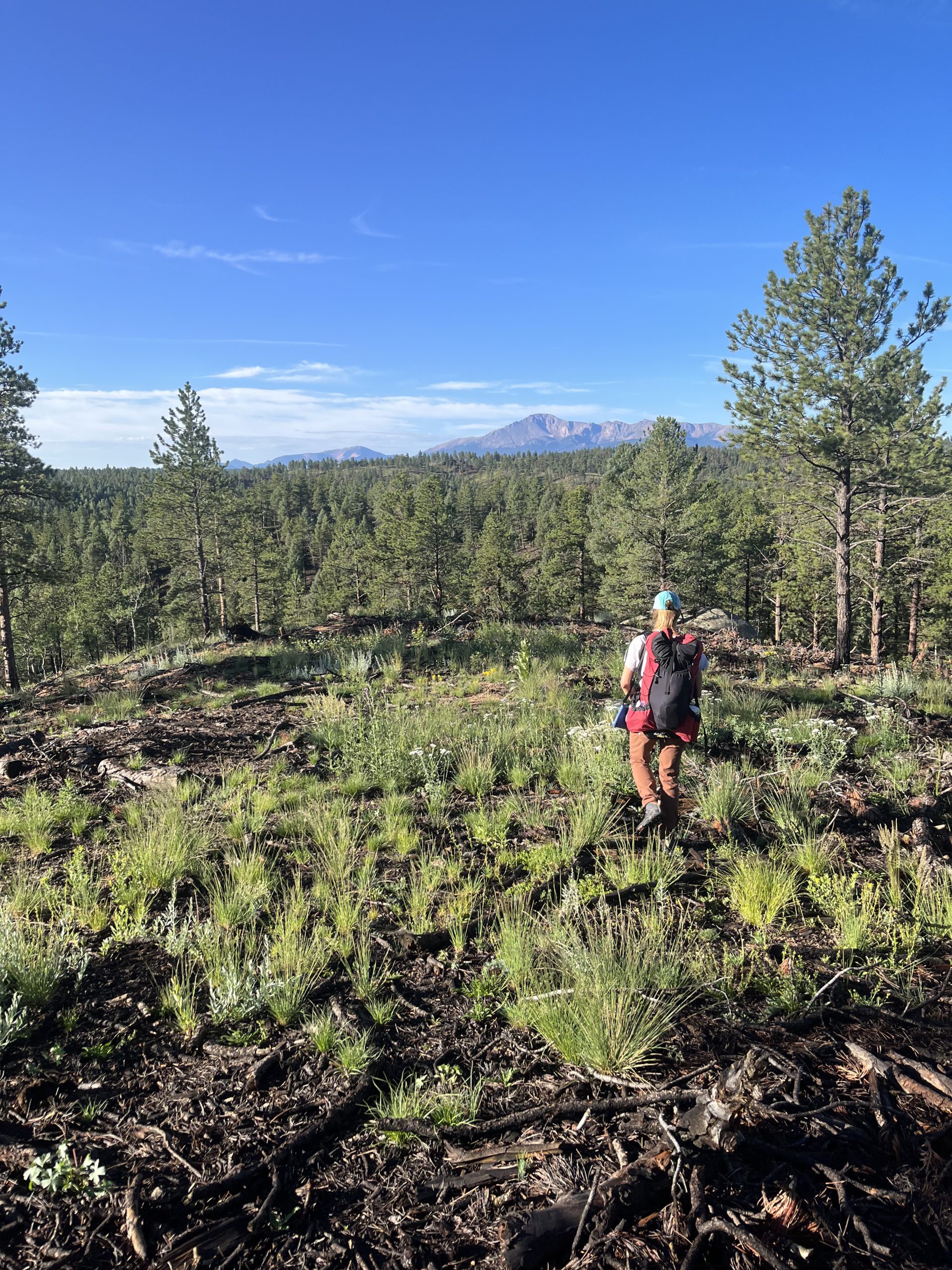For many small farms in biodiverse areas, balancing economic survival with forest conservation is a daily challenge. Savannah Lehnert, a Ph.D. student in environmental studies at CU Boulder and Institute of Behavioral Science (IBS) research assistant, aims to help farmers balance economic and environmental sustainability through the IBS Training Program Fall Small Grant Award. The $1,500 award will fund preliminary fieldwork and language training essential for her research.
“I hope to contribute to conservation efforts by generating a better understanding of different mechanisms that can be used to support people’s livelihoods and wildlife within agroforestry systems. Because agriculture intensification is occurring globally, this research is highly relevant to agroforestry systems elsewhere.”
The small grant will help Lehnert achieve three research objectives:
- Achieve Brazilian Portuguese language proficiency via a two week in-situ language school.
- Establish a network of collaborations with local landowners and with scientists at the Universidade Estadual de Santa Cruz (UESC) in Bahia, Brazil.
- Scout potential field site locations within cacao farms that implement different management strategies.
Southern Bahia in Brazil produces half of the country’s raw cacao. It is also home to a large portion of the Atlantic Forest, one of 35 biodiversity hotspots in the world. The majority of Bahian cacao is grown by smallholder farmers in traditional agroforestry systems called ‘cabrucas’, in which cacao plants are grown under native Atlantic Forest canopy.
Due to market pressures, many cacao farmers are intensifying production by removing native trees that provide habitat for rare and endangered species. Given that only 12% of the original Atlantic Forest biome remains, it is crucial to find a balance between economic and environmental sustainability.
“I seek to understand how a combination of different on-farm management strategies and forms of external support (e.g., enrollment in certification programs) can be employed to optimize both biodiversity and economic farm outcomes,” says Lehnert. “Strategies for conservation need to be developed that go hand in hand with economic security for local landowners and managers.”
Lehnert has been passionate about protecting biodiversity and wild places since childhood. She was initially drawn to environmental science for its “Indiana Jones” appeal and allure of being able to travel to remote places.

“Since then, I have found larger appeal in conservation biology and environmental studies because these disciplines tend to consider environmental problems within the context of social and economic issues, which I believe produce solutions that are more tailored to the real world,” says Lehnert.
One real world component in Lehnert’s research is an emphasis on compassion and support for the locals who live in biodiverse areas. These individuals depend on the land for their family’s survival. Lehnert warns long-term gains in conservation cannot be made without sustaining locals’ economic and social livelihoods. In addition, Lehnert encourages us to better understand the consequences of our purchasing power.
“The truth is that as consumers in a globalized economy, we are all a part of a system that drives deforestation in biodiverse regions such as the Amazon and the Atlantic Forest,” says Lehnert. “As consumers with buying power, especially from Global North countries which largely drive demand, it is a responsibility to be literate, or at least aware, about where our food comes from and the consequences of those purchasing decisions.”
After graduation, Lehnert would like to work as a researcher or consultant for a conservation, biology-oriented non-profit in Latin America. A longer-term dream of Lehnert’s is to open a research station in the Chocó region of South America. She has deep emotional ties to this biodiverse hotspot, which faces a myriad of threats. Lehnert hopes to contribute to the region’s conservation in a way that is socially sustainable.
For aspiring graduate students, Lehnert advises taking time off to gain perspective on your research.
“Even if your interests don’t change, your understanding of how you and your work fits into the bigger picture will be better situated,” says Lehnert. “I took three years in between my undergraduate degree and my master’s degree, and again between my master’s and PhD program, and am very grateful for that time in giving me greater perspective.”
With the backing of the IBS Training Program grant, Lehnert is one step closer to making a lasting impact in both environmental conservation and economic sustainability for farmers. Her work in Brazil will help biodiversity thrive amidst human modified landscapes and ensure farmers receive the support they need to be both sustainable and economically prosperous.
